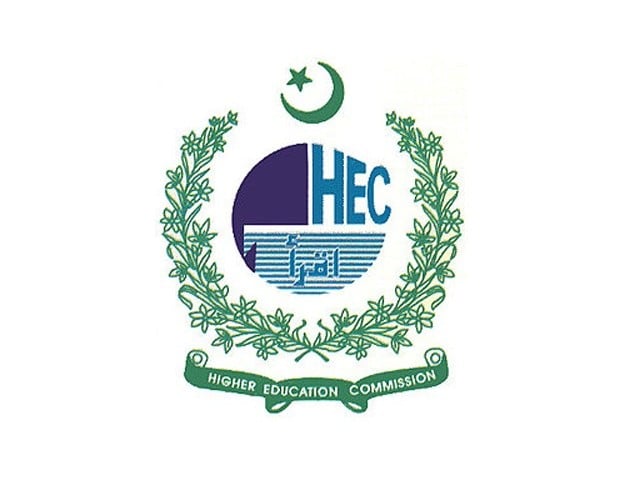Assessing Gender Equality in Healthcare: How HR Practices and Organizational Culture Affect Women’s Career Trajectories in Pakistan
Keywords:
Female healthcare workers, gender dynamics, gender inequality, societal expectations, healthcare sector, PakistanAbstract
Background of the study: This qualitative study focuses on the experiences of female healthcare workers in Sindh, Pakistan, exploring the gender dynamics within the healthcare sector. It highlights systemic challenges such as gender inequality, work-life balance struggles, and societal expectations that position women as primary caregivers.
Methodology: Employing an ontological constructivist perspective and Reflective Thematic Analysis, the study involves semi-structured interviews with 25 female participants. These discussions reveal the interplay between professional responsibilities and family duties.
Results: Participants report significant tension between their professional roles and familial responsibilities, often resulting in burnout and professional stagnation. The study further identifies a lack of supportive institutional policies, including inadequate maternity leave and inflexible work schedules, which complicate the ability of women to manage both career and family life effectively.
Conclusions: The findings underscore the structural and cultural barriers that inhibit the advancement of women in the healthcare sector. The research calls for policy reforms to foster a more inclusive and supportive work environment for women. It suggests that future research could incorporate male perspectives using an abductive approach to understand the gender dynamics and systemic challenges in healthcare fully.
References
1. Abbas, S., Isaac, N., Zia, M., Zakar, R., & Fischer, F. (2021). Determinants of women’s empowerment in Pakistan: evidence from Demographic and Health Surveys, 2012–13 and 2017–18. BMC Public Health, 21, 1-14
2. Acker, J. (1990). Hierarchies, jobs, bodies: A theory of gendered organizations. Gender & society, 4(2), 139-158
3. Afzal, A., Arshad, M., & Naseem, Z. (2024). Familial and socio-cultural barriers faced by working women: Evidence-based study of district Gujrat, Punjab, Pakistan. Pakistan Journal of Applied Social Sciences, 15(1), 43-62
4. Al-Ababneh, M. (2020). Linking ontology, epistemology and research methodology. Science & Philosophy, 8(1), 75-91
5. Ali, T. S., Ali, S. S., Nadeem, S., Memon, Z., Soofi, S., Madhani, F., ... & Bhutta, Z. A. (2022). Perpetuation of gender discrimination in Pakistani society: results from a scoping review and qualitative study conducted in three provinces of Pakistan. BMC Women's Health, 22(1), 540
6. Ali, T. S., Ali, S. S., Nadeem, S., Memon, Z., Soofi, S., Madhani, F., ... & Bhutta, Z. A. (2022). Perpetuation of gender discrimination in Pakistani society: results from a scoping review and qualitative study conducted in three provinces of Pakistan. BMC Women's Health, 22(1), 540
7. Allsup, R. E. (2020). Epistemology and qualitative research in music education. Approaches to qualitative research: An Oxford handbook of qualitative research in American music education, 1, 37
8. Alumran, A., Almutawa, H., Alzain, Z., Althumairi, A., & Khalid, N. (2021). Comparing public and private hospitals’ service quality. Journal of Public Health, 29, 839-845
9. Arshad, Q., Imran, M., & Pervaiz, U. (2022). The Impact of Workplace Support and Private Level Support on Work-Life Balance Satisfaction among Female Employees in the Health Sector of Pakistan. Journal of Managerial Sciences, 16(3), 61-74
10. Asrar, H., Amen, U., Sumayya, U., & Butt, A. (2021). Impact of Workplace Bullying on Psychological Wellbeing of Doctors in Health Care Sector of Pakistan. Journal of Entrepreneurship, Management, and Innovation, 3(2), 429-450
11. Bates, T. (2022). Rethinking how we work with Acker's theory of gendered organizations: An abductive approach for feminist empirical research. Gender, Work & Organization, 29(4), 1041-1064
12. Bhatti, A., & Ali, R. (2020). Gender, culture and leadership: Learning from the experiences of women academics in Pakistani universities. Journal of Education & Social Sciences, 8(2), 16-32
13. Bhatti, A., & Ali, R. (2021). Women constructing leadership identities in academia: Intersection of gender and culture. Issues in educational research, 31(1), 1-18
14. Braun, V., & Clarke, V. (2019). Reflecting on reflexive thematic analysis. Qualitative research in sport, exercise and health, 11(4), 589-597
15. Braun, V., Clarke, V., Hayfield, N., Davey, L., & Jenkinson, E. (2023). Doing reflexive thematic analysis. In Supporting research in counselling and psychotherapy: Qualitative, quantitative, and mixed methods research (pp. 19-38). Cham: Springer International Publishing
16. Busch, F. (2020). Gender segregation, occupational sorting, and growth of wage disparities between women. Demography, 57(3), 1063-1088
17. Byrd, R. (2020). Qualitative research methods. Virtual Class, Memphis. Recuperado em, 17
18. Dhahri, A. A., Iqbal, M. R., & Khan, A. F. A. (2020). A cross-sectional survey on availability of facilities to healthcare workers in Pakistan during the COVID-19 pandemic. Annals of Medicine and Surgery, 59, 127-130
19. Hasan, S. S., Mustafa, Z. U., Kow, C. S., & Merchant, H. A. (2022). “Sehat Sahulat Program”: a leap into the universal health coverage in Pakistan. International Journal of Environmental Research and Public Health, 19(12), 6998
20. Hinduja, P., Siddiqui, S., & Kamran, M. (2023). Public sector education and gender inequality: A mixed-method study in metropolis city of Pakistan. Asian Women, 39(1), 45-68
21. Hussain, S., & Jullandhry, S. (2020, September). Are urban women empowered in Pakistan? A study from a metropolitan city. In Women's Studies International Forum (Vol. 82, p. 102390). Pergamon
22. Iftikhar, S., Yasmeen, R., Khan, R. A., & Arooj, M. (2023). Barriers and Facilitators for Female Healthcare Professionals to Be Leaders in Pakistan: A Qualitative Exploratory Study. Journal of Healthcare Leadership, 71-82
23. Iftikhar, S., Yasmeen, R., Khan, R. A., & Arooj, M. (2023). Barriers and Facilitators for Female Healthcare Professionals to Be Leaders in Pakistan: A Qualitative Exploratory Study. Journal of Healthcare Leadership, 71-82
24. Inam, H., Janjua, M., Martins, R. S., Zahid, N., Khan, S., Sattar, A. K., ... & Malik, M. A. (2020). Cultural barriers for women in surgery: how thick is the glass ceiling? An analysis from a low middle‐income country. World journal of surgery, 44(9), 2870-2878
25. Janjua, M. B., Inam, H., Martins, R. S., Zahid, N., Sattar, A. K., Khan, S. M., ... & Malik, M. A. (2020). Gender discrimination against female surgeons: a cross-sectional study in a lower-middle-income country. Annals of Medicine and Surgery, 57, 157-162
26. Jenkins, J., & Finneman, T. (2018). Gender trouble in the workplace: applying Judith Butler’s theory of performativity to news organizations. Feminist Media Studies, 18(2), 157-172
27. Johnson, S. (2022). Women deserve better: A discussion on COVID‐19 and the gendered organization in the new economy. Gender, Work & Organization, 29(2), 639-649
28. Kabeer, N. (2021). Gender equality, inclusive growth, and labour markets. In Women's Economic Empowerment (pp. 13-48). Routledge
29. Khalid, F., Raza, W., Hotchkiss, D. R., & Soelaeman, R. H. (2021). Health services utilization and out-of-pocket (OOP) expenditures in public and private facilities in Pakistan: an empirical analysis of the 2013–14 OOP health expenditure survey. BMC health services research, 21, 1-14
30. Khan, T., & Siriwardhane, P. (2021). Barriers to career progression in the higher education sector: Perceptions of Australian academics. Sustainability, 13(11), 6255
31. KHURSHID, N., NASEER, A., KHURSHID, J., KHOKHAR, A. M., & IRFAN, M. (2022). Assessing Social and Work Environmental Factors Towards Women Upward Career Development: An Empirical Study from Pakistan. The Journal of Asian Finance, Economics and Business, 9(1), 53-61
32. Kinshella, M. L. W., Sheikh, S., Bawani, S., La, M., Sharma, S., Vidler, M., ... & CLIP Working Group. (2021). “Now You Have Become Doctors”: Lady Health Workers' Experiences Implementing an mHealth Application in Rural Pakistan. Frontiers in Global Women's Health, 2, 645705
33. Kumar, P., Khan, U. R., Soomar, S. M., Jetha, Z., & Ali, T. S. (2023). Workplace Violence and Bullying Faced by Health Care Personnel at the Emergency Department of a Tertiary Care Hospital of Karachi, Pakistan: A Cross-Sectional Study. Journal of emergency nursing, 49(5), 785-795
34. Lolai, M. B., Mahesar, S. A., Qureshi, M. B., & Abro, A. A. (2023). Impact of Workplace Violence, Bullying and Harassment on the Performance of Female Staff Nurses: A Case Study of Private Sector Hospitals of Hyderabad District, Sindh, Pakistan. Journal of Management Practices, Humanities and Social Sciences, 7(5), 32-47
35. Malik, M. A., Inam, H., Martins, R. S., Janjua, M. B. N., Zahid, N., Khan, S., ... & Enam, S. A. (2021). Workplace mistreatment and mental health in female surgeons in Pakistan. BJS open, 5(3), zrab041
36. Masitoh, D., & Pramesti, F. A. (2020). Gender inequality in Pakistan caused by domestic factors and conflict resolving based on CEDAW. Nation State: Journal of International Studies, 3(2), 241-258
37. Mirza, A. M. B., & Jabeen, P. D. N. (2020). Gender stereotypes and women in management the case of banking sector of Pakistan. South Asian Studies, 26(2)
38. Mohsin, M., & Syed, J. (2020). The missing doctors—an analysis of educated women and female domesticity in Pakistan. Gender, Work & Organization, 27(6), 1077-1102
39. Noor, N., Rehman, S., Ahmed, Y., Sarmad, M., & Mehmood, R. (2023). Discriminatory practices and poor job performance: A study of person-related hostility among nursing staff. Heliyon, 9(3)
40. Noor, N., Rehman, S., Ahmed, Y., Sarmad, M., & Mehmood, R. (2023). Discriminatory practices and poor job performance: A study of person-related hostility among nursing staff. Heliyon, 9(3)
41. Olarewaju, T., & Fernando, J. (2020). Gender inequality and female entrepreneurship in developing countries. In Decent work and economic growth (pp. 473-481). Cham: Springer International Publishing
42. Rao, A., & Shailashri, V. T. (2021). Work-Life balance of women medical professionals in the healthcare Sector-A systematic literature review. International Journal of Health Sciences and Pharmacy (IJHSP), 5(2), 54-79
43. Raza, A., Jauhar, J., Abdul Rahim, N. F., Memon, U., & Matloob, S. (2023). Unveiling the obstacles encountered by women doctors in the Pakistani healthcare system: A qualitative investigation. Plos one, 18(10), e0288527
44. Raza, A., Jauhar, J., Abdul Rahim, N. F., Memon, U., & Matloob, S. (2023). Unveiling the obstacles encountered by women doctors in the Pakistani healthcare system: A qualitative investigation. Plos one, 18(10), e0288527
45. Saleem, Z., Shenbei, Z., & Hanif, A. M. (2020). Workplace violence and employee engagement: The mediating role of work environment and organizational culture. Sage Open, 10(2), 2158244020935885
46. Shahzadi, R., Arshad, M., & Afzal, A. (2023). WORKPLACE SEXUAL HARASSMENT: A STUDY OF FEMALE NURSES FROM HEALTHCARE INSTITUTES OF LAHORE, PAKISTAN. PAKISTAN ISLAMICUS (An International Journal of Islamic & Social Sciences), 3(2), 142-157
47. Shakir, M., Irshad, H. A., Altaf, A., Ladak, S., Aziz, H. F., & Enam, S. A. (2024). Does gender disparity exist in neurosurgery training? Evidence from a nationwide survey from Pakistan. Medical Education Online, 29(1), 2310385.
48. Smith, S. G., & Sinkford, J. C. (2022). Gender equality in the 21st century: Overcoming barriers to women's leadership in global health. Journal of Dental Education, 86(9), 1144-1173
49. Sultan, S. (2022). Work-related quality of life of Pakistani Doctors. Sultan, S.(2023). Work-related quality of life of Pakistani Doctors. International Journal of Health Sciences, 7, 1350-1362
50. Ullah, Z., Sulaiman, M. A. B. A., Ali, S. B., Ahmad, N., Scholz, M., & Han, H. (2021). The effect of work safety on organizational social sustainability improvement in the healthcare sector: The case of a public sector hospital in Pakistan. International journal of environmental research and public health, 18(12), 6672
51. Ullah, Z., Sulaiman, M. A. B. A., Ali, S. B., Ahmad, N., Scholz, M., & Han, H. (2021). The effect of work safety on organizational social sustainability improvement in the healthcare sector: The case of a public sector hospital in Pakistan. International journal of environmental research and public health, 18(12), 6672
52. USMAN, M., KANWEL, S., KHAN, M. I., & Khan, A. (2021). Advancing Gender Equality within the Legal Framework of Pakistan: Navigating Progress and Overcoming Persistent Challenges. International Review of Social Sciences (IRSS), 9(5), 310-316
53. Vears, D. F., & Gillam, L. (2022). Inductive content analysis: A guide for beginning qualitative researchers. Focus on Health Professional Education: A Multi-Professional Journal, 23(1), 111-127
54. Waqar, S., Hanif, R., & Loh, J. (2021). Invisibility not invincibility: Pakistani women and the lack of career ascendance. Gender in management: an international journal, 36(6), 731-744
Downloads
Published
Issue
Section
License
Copyright (c) 2024 Archives of Management and Social Sciences

This work is licensed under a Creative Commons Attribution 4.0 International License.




